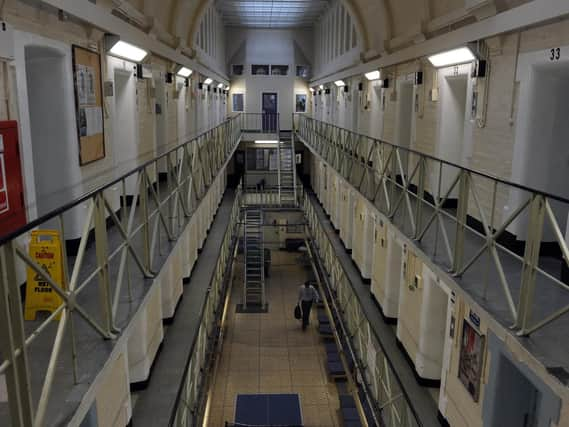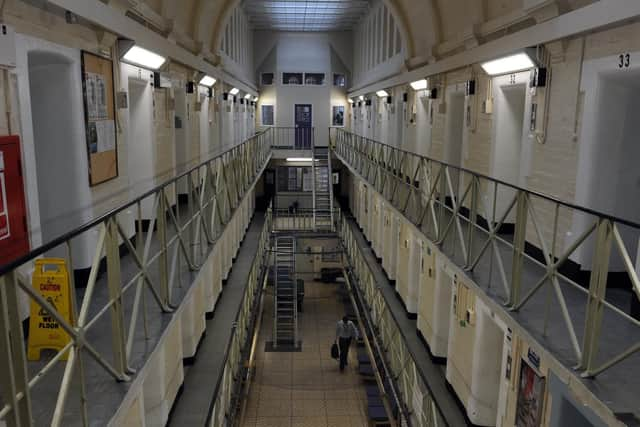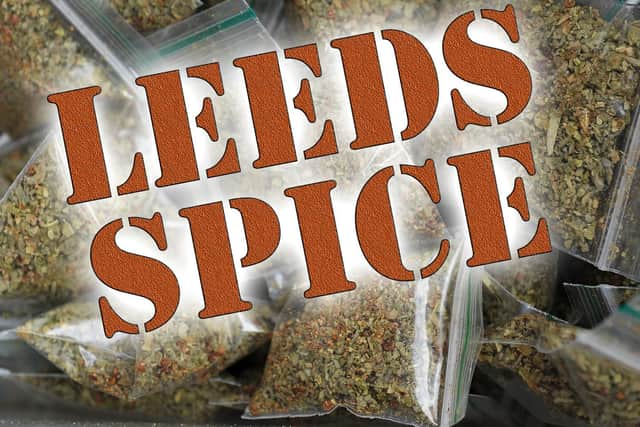Leeds spice: This is what HMP Leeds do to combat drugs being smuggled inside


In his 2018 report, Chief Inspector of Prisons Peter Clark said Leeds had a problem with drugs, with more than 60 per cent of prisoners saying it was easy to get hold of them.
He noted that the drug supply reduction strategy was reasonable and some positive action had been taken, but around a third of prisoners had tested positive for drugs, including new psychoactive substances such as spice.
Advertisement
Hide AdAdvertisement
Hide Ad

It meant medical staff were frequently called upon to support prisoners experiencing the ill-effects of drugs.
Official figures published earlier this year also showed that drugs had been found during 456 searches carried out inside the prison in the 12 months to March 2018 – five times more than five years ago.
Governor of HMP Leeds, Steve Robson said today: “My staff are dedicated to ensuring the prison is safe, decent and drug free.
Advertisement
Hide AdAdvertisement
Hide Ad“We have specialist drug search teams, sniffer dogs and the technology to test incoming mail for drugs. Thanks to all of this, we’ve seen a noticeable reduction in the number of incidents with psychoactive substances over the past nine months.”


In July, the prison service announced a £30m investment including £16m to improve conditions for prisoners and staff and £7m on new security measures, such as airport-security style scanners, improved searching techniques and phone-blocking technology. Then last month, the service said another £10m would be invested in 10 “difficult” prisons, including HMP Leeds.
Prisons Minister Rory Stewart said at the time that a surge in the use of spice and other drugs was driving prisoners into “aggressive frenzies”, while prison guards needed more training to help them clamp down on poor behaviour by inmates.
Advertisement
Hide AdAdvertisement
Hide AdA spokesman for the prison service said: “We have implemented a new drug testing programme, including mandatory drug tests for psychoactive substances.
“We have made it a criminal offence to possess psychoactive substances in prisons and we are transforming our intelligence capabilities and our ability to work with law enforcement to disrupt criminal networks.
“We are giving our staff specialist advice about managing the use of psychoactive substances in prisons, as well as new drug testing equipment.”
POLICE ACTION:
Advertisement
Hide AdAdvertisement
Hide AdTwo groups in society typically associated with the use of spice are people on the streets and those behind bars.
Understanding the links between the two is viewed as an important part of efforts to combat the drug’s spread.
Chief Inspector Richard Padwell, who heads up neighbourhood policing in Leeds city centre and chairs the city’s multi-agency group on spice, said: “A key issue is the use of spice in prisons and the link this has to the use of the drug among the street community.
“Our Prison Investigation Team already works closely with the prison authorities to target the issue of drugs being smuggled into prisons and we are looking to develop our links with the prisons around the wider multi-agency strategy on spice.”